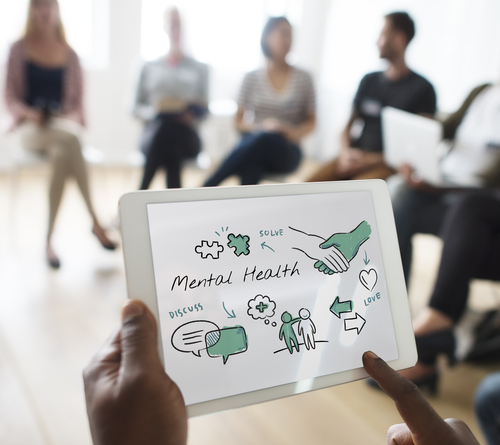As new revolutions in technology continue to transform every facet of daily life, it should not be surprising that the world of healthcare has felt some of its biggest effects. People are now living longer lives and enjoying better health outcomes thanks to a plethora of advances. However, these advances are often touted within the confines of improving physical health outcomes. Nevertheless, the world of mental health is being transformed by a wide variety of technologies as well. From practical applications in doctor-patient settings to a sea-shift in how health professionals are trained, these transformations are particularly significant. To highlight just how much progress is being made in the 21st century, let’s examine the positive impact that technology is having on mental health outcomes.
Increased Educational Opportunity for Healthcare Workers
It’s arguable that the quality of education that mental healthcare professionals receive has a dramatic impact on mental health of a society at-large. This is why the continued growth of educational opportunities via online mediums is such a welcomed trend. Those seeking to pursue further education and certifications now have more flexible options, leading to an increase in mental health professional availability. Anybody who wishes to earn an online social work masters degree, a bachelor’s degree in psychology, or pursue a career as a nurse practitioner can now do so both via a physical campus or through online courses. The proliferation of technology has made this possible, and it is leading to outcomes where more people are pursuing mental health care careers and furthering their existing skills.
Apps and Communities for Those Who Struggle
Addressing any mental health situation is a two-pronged endeavor: both those offering care and those seeking care must have viable solutions to remedy the issue. Technology’s foray into improving mental health outcomes isn’t limited to those who provide care, as many who have struggled will tell you. A wide variety of mental health community forums and apps are available to those who are suffering 24/7. The ability for those who are battling depression and other major mental health crises can immediately find support systems through the use of technology that can often provide temporary relief until more permanent remedies are secured. These options have literally saved lives.
Alleviating the Sense of Loneliness
Technology – and in particular, its ability to connect individuals across space and time alike – has created a sense of inclusion and community for countless millions who otherwise struggle with mental illness. Being able to express one’s thoughts and feelings in a virtual setting allows people to deal with their grief, depression and other feelings in a way that might not be as easy in a physical setting. Likewise, shared communities of interest allow those who struggle to interact or communicate with others in real life settings to make friends and acquaintances. Given that one of the biggest triggers of mental disorders is a lack of human connection and bonds, technology has given countless people the ability to interact and bond with other people, regardless of location.
Conclusion
While technology certainly presents society with both pros and cons, it is also providing tools and methods through which mental health woes can be addressed. Whether that be by combating loneliness, better educating health care professionals or providing platforms for those struggling to address its symptoms, 21st century technology is helping to improve mental health outcomes.

